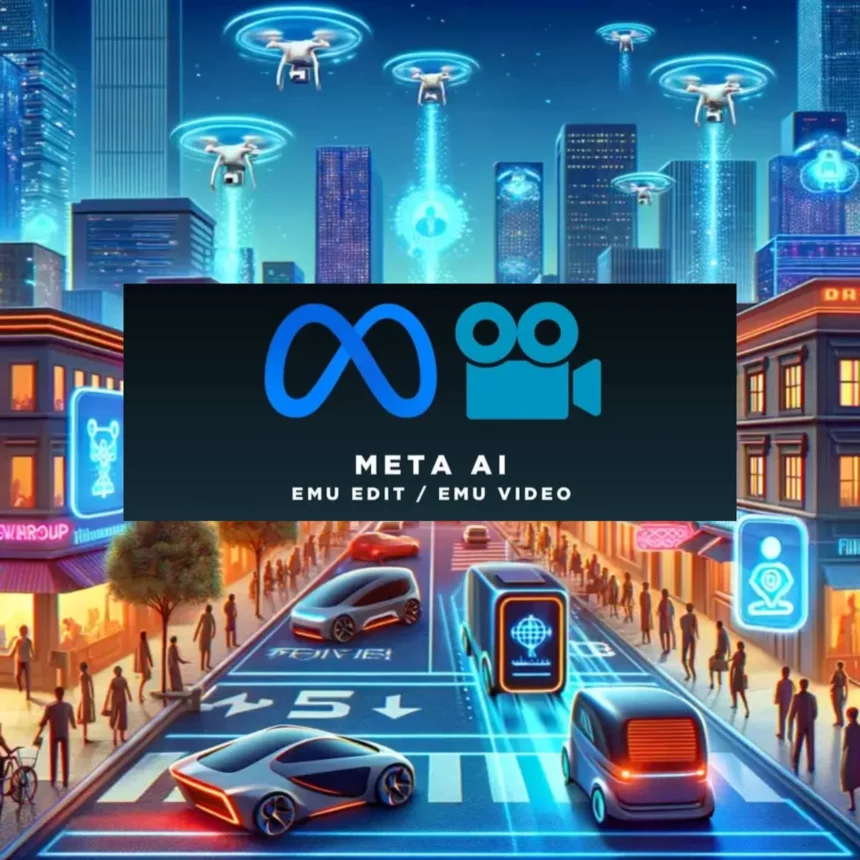Meta’s new AI tools like Emu Video show the promise and peril of automated film production, able to create short animated scenes but raising concerns about deepfakes, unlicensed data, and the future roles of human animators and actors as cost incentives drive replacement over augmentation.
Meta Ventures into AI-Generated Videos: Introducing Emu Video for Animated Clips
Meta leapt AI-generated films and shows with the launch of Emu Video, an evolution of its image creation tool Emu.
Emu Video can create short, animated clips based on text captions or paired images and descriptions.
The 4-second, 16 fps videos showcase AI’s ability to conjure complex scenes, like waterfalls and cityscapes.
However, the limitation remains clear. The movement lacks naturalness, with odd physics and appendages. Subjects also demonstrate limited interactivity, failing to “strum” guitars or move chess pieces when described.

©Meta
Animation
Meta also introduced Emu Edit, which allows editing requests like “slow motion” to alter generated videos. While imperfect, Emu Video shows promise for basic scene-setting shots comparable to current film and TV.
Meta is integrating the tools into Facebook and Instagram. But automation threatens jobs in animation and visual effects.
Meta argues that AI merely “augments” artists, but cost incentives could see a replacement. Despite animator shortages, Netflix used AI art in an animated short, provoking backlash.

©Meta
Meta’s Tools also Spark Ethical Concerns in Video Creation
Meta’s tools also raise ethical concerns about deepfakes and unlicensed training data.
Emu Video highlights the coming collision of automation and creativity. As generating realistic video becomes possible, who will benefit?
Meta’s tools inch us closer to automated moviemaking, but progress seems likely to outpace ethics and societal readiness. The future roles of artists and actors face mounting uncertainty.









